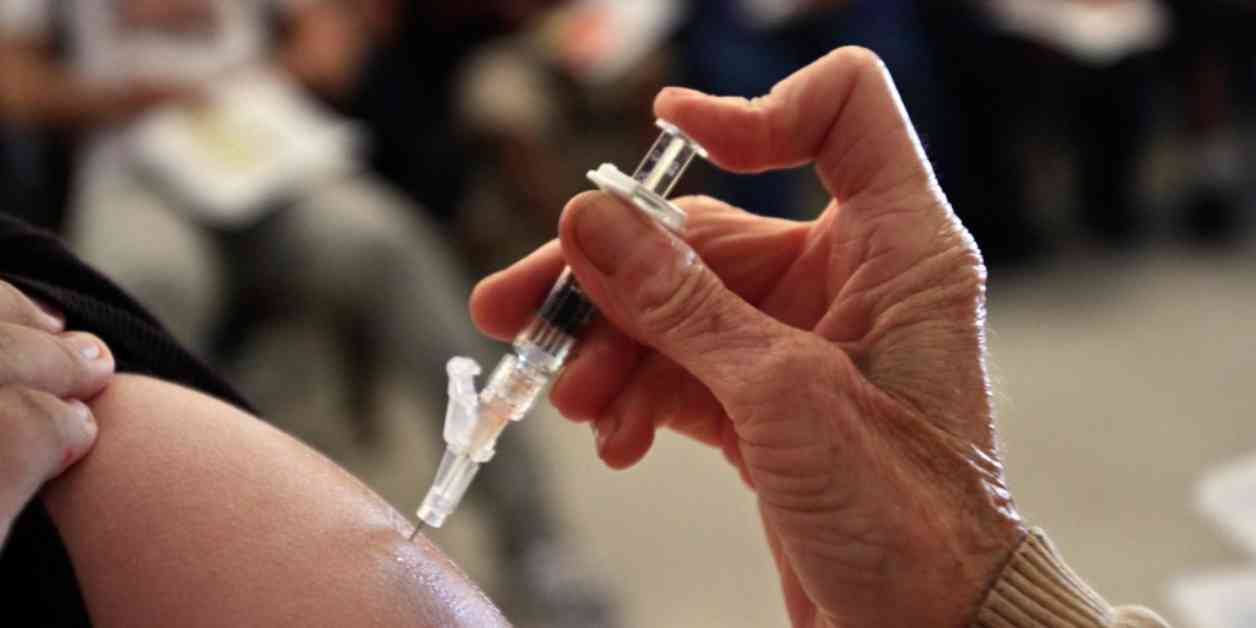Surge in Whooping Cough Cases Hits 10-Year Peak
Whooping cough cases in the United States have soared to the highest levels seen in the past decade, with a staggering 32,000 cases reported as of December 14th. This drastic increase marks a significant jump from the mere 5,100 cases recorded at the same time last year. Experts attribute this alarming trend to various factors, including a decline in vaccination rates.
The Impact of the Surge
The spike in whooping cough cases has been unprecedented, with the number of cases in the last 12 weeks alone matching the total for the entire previous year. Between mid-September and December 14th, the nationwide count surged from 14,500 to over 32,000 cases, a six-fold increase from the same period in 2023. The total for 2022 was even lower, standing at approximately 3,000 cases.
Experts believe that the sharp rise in whooping cough cases can be attributed to several factors. While the drop in cases during the Covid pandemic initially led to an expected rebound to pre-pandemic levels, this year’s total far exceeds 2019 figures. The increase is likely due to a combination of waning vaccine protection, declining vaccination rates, and enhanced testing capabilities.
The Severity of Whooping Cough
Also known as pertussis, whooping cough is a bacterial infection that primarily affects the upper respiratory system. The infection typically follows a seasonal pattern, peaking in the fall or winter months. Initial symptoms mimic those of a common cold, including cough, fever, and a runny nose. However, after a week or two, patients often experience severe cough attacks that make breathing difficult.
Dean Blumberg, chief of pediatric infectious diseases at the University of California, Davis, Children’s Hospital, highlighted the severity of whooping cough, especially in infants. He emphasized that infants, particularly those under six months of age, are at the highest risk of infection and serious complications. Blumberg recounted tragic cases of infant fatalities and ICU admissions due to pertussis, underscoring the urgent need for vaccination.
The Importance of Vaccination
Vaccination remains the most effective preventive measure against whooping cough. The Centers for Disease Control and Prevention (CDC) recommends the DTaP vaccine for everyone in the U.S. starting at two months of age. Infants should receive doses at 2, 4, and 6 months, with booster shots at 12-15 months and 4-6 years. Preteens, adults, and pregnant individuals are advised to receive the Tdap vaccine.
Despite high vaccination rates in the past, recent data indicates a decline in coverage, especially among children and preteens. Improved testing capabilities have led to more accurate diagnoses of whooping cough cases, contributing to the rise in reported incidents. Experts urge parents to prioritize vaccination for their children and themselves to curb the spread of this dangerous infection.
As we navigate this critical juncture in public health, the resurgence of whooping cough serves as a stark reminder of the importance of vaccination. By heeding expert advice and ensuring timely immunization, we can collectively safeguard our communities and protect vulnerable populations from the devastating impact of preventable diseases. Let us join forces in the fight against whooping cough and prioritize the health and well-being of ourselves and our loved ones.
